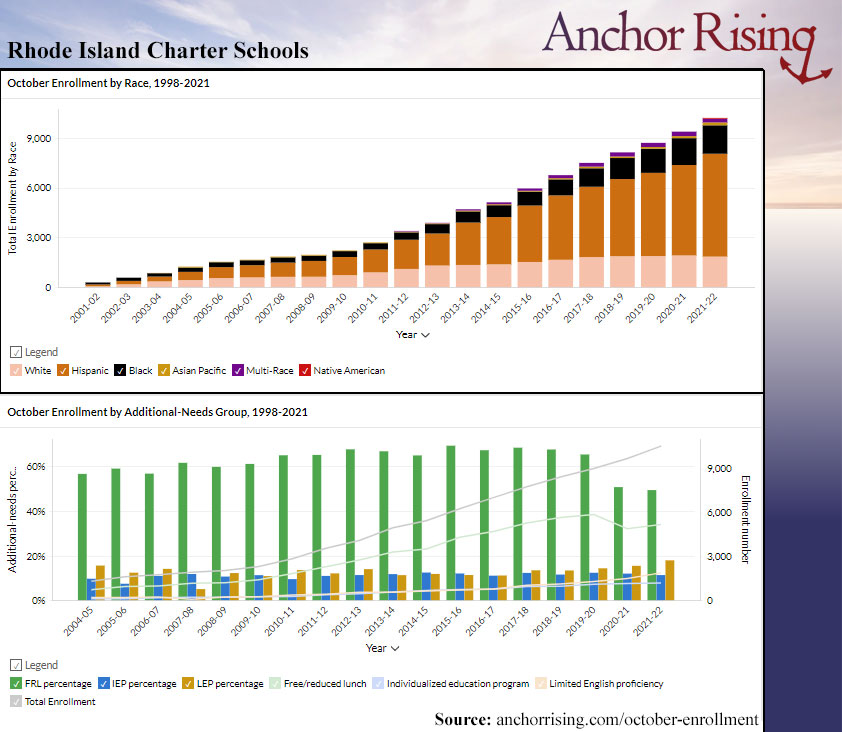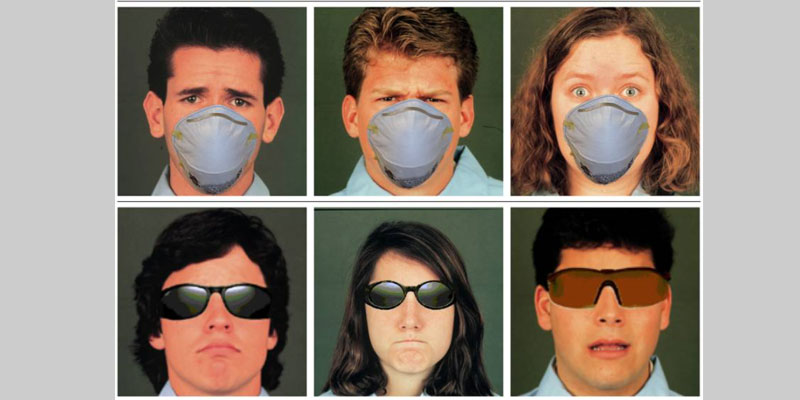Robert VerBruggen’s response is perfect to a chart showing how the average disposable income in most European countries is poverty by U.S. standards:
This is why people love using “relative” poverty measures. It’s basically dividing by how awesome America is, to make America look un-awesome.
The mind-blowing thing is that most European countries could easily move closer to the U.S. standard by liberating their people. Instead, an entire political party in the United States is dedicated to making our results more like theirs!
People should ask themselves what such people stand to gain by that absurd move.
[Open full post]The headline that the Providence Journal gave to Mark Patinkin’s latest column puts things in a useful context: “It’s just a cold, right? I thought a booster made me invulnerable — but I got COVID.” If we step back a pace and look at things objectively, we might indeed wonder what makes COVID something other than or, more relevantly, something more ominous than “just a cold.”
Amidst personal details about family members and descriptions of his journey to a positive test result, Patinkin provides the answer:
I wasn’t careful enough when I first felt a “cold” come on. There’s a reflex to tell yourself it’s just that, a cold. So I didn’t quarantine away from my son, as well as a close college pal of my daughter who has been staying with us in our home.
Thankfully, both of them avoided the virus, with repeated PCR tests negative. But it still meant they had to miss work for ten days because they were exposed. The state only asks that such folks test; but their jobs asked that they quarantine. …
For 18 months, I told myself that risking COVID is mostly my own peril. I’m now far more clear at how disruptive we can be to others — even if they don’t get it.
What makes COVID more ominous than “just a cold” — or “just the flu,” in acknowledgment that it can produce worse outcomes than head colds — is the wall of rules and restrictions that authorities are imposing, whether governments or employers. It’s not the virus causing the problem, now; it’s us. Patinkin goes on to describe how he directed the icy glare of the state (in the person of the “caring, professional” Nick) toward everybody with whom he had interacted. No doubt their phones soon rang with horror-movie music in the background.
As a parent, I’ve been watching the dread of restrictions transfer to ordinary illnesses. Schools seem willing to let children get away with the sniffles, but if the congestion creates a cough (which congestion tends to do), then that’s two symptoms, which requires a test. Meanwhile, the state is taking up to four days to return the results that count as a get-out-of-jail ticket. For kids, in other words, “just a cold” means the better part of a week out of school. It’s no longer only COVID that can disrupt others’ lives.
As a society, we’ve reached the point of having to ask ourselves whether this is where we want to go. Are we going to be so nosophobic that we accept a standard of zero preventable spread of any disease, no matter how mild?
The alternative to allowing fear of COVID to infect our reaction to more-familiar illnesses is to go in the other direction and finally expand our perspective on colds and flus to cover “the novel coronavirus.” That is, we can acknowledge that it’s simply part of the human experience and go about our lives — not taking unnecessary risks, but not imposing the unnecessary side effects of excessive caution.
Sure, for a professional columnist, fear of COVID may only mean giving up theater tickets, but the consequences are much more dire for most people, especially children, who (let’s not forget) have proven mostly immune to bad COVID anyway. Perhaps our more-senior citizens will be beyond caring when our country has to learn the lesson of fear’s effects, but if we’re wise, we’ll account for them, now, in our cultural responses.
Featured image by Brittany Colette on Unsplash.
[Open full post]This suggestion from Nicole Solas has stayed near the top of my “to post” list for a month because it gets to an important strategic discussion too often rushed through on the Rhode Island right.
Nicole retweeted the picture used as the featured image of this post, which was posted by Kara. The “thank you” card reads, “Get the hell out of NK + stay in Coventry where you belong.” Nicole suggests:
If u receive notes of harassment & intimidation from political opponents, report ur legitimate, good faith basis of harassment, stalking, or intimidation to the police. Leftists files reports of fantasy thought crime in “bias reporting” systems & then uses those fake reports to justify more oppressive bias reporting policies like KGB General Garland’s memo marking parents as domestic terrorists. Unlike the lying left, conservatives actually are being harassed, and we need to file every single report of harassment to fight back.
We need to adopt leftist tactics to beat them at their own game. Leave no stone unturned. Answer them blow for blow. Every leftist misstep needs a formal complaint whether it’s filed in the school district, police station, ethics commission or court of law. Fight fire with fire.
The reason this is an important discussion to have is that we’re on a spinning wheel. In Rhode Island, and even within my own town, I’ve watched newly engaged people push back in exactly this way and ultimately burn out without having accomplished the needed correction. The primary reason it fails is that such solutions require some semblance of fairness in the news media, the police, the attorney general’s office, and the judiciary, and Rhode Island is just too far gone.
I brought a giant stack of harassing messages from one person to our local police, who seemed to agree they were, on their face, cyberharassment — targeting my children and actively using social media and other methods of online communication to get organizations to intimidate me and deprive me of employment and recognition. We can debate whether cyberharassment ought to be a crime, but if it is a crime (which it is) this was definitely it. The solicitor who handles local police prosecutions rejected the complaint, and there was no investigation.
Look at Black Lives Matter and Antifa riots versus January 6 at the Capitol. Although the incidents are usually less profound, the double standard is even more pronounced at the state and local level. Leftist outrages are excused or ignored, but if you’re a conservative, your (much less aggressive) response will be treated as the greatest of offenses.
As this plays out, your supporters will become frustrated, and most will give up, either returning to their lives or even leaving the state. Those of us who stay engaged, having learned from our mistakes, look up from our recovery and see a group of newly engaged people insisting that the solution is to push back and fight fire with fire. Been there, done that.
I could definitely be wrong, here; it’s possible this new wave will accomplish something where others have failed. But I think Nicole’s advice will prove wrong. The sheer volume of the offenses will work against you. One formal complaint is news (or maybe not, in our current environment). Dozens are noise. The media and the Democrats in power have no sympathy for you. Most think you deserve to be harassed, if they’re being honest.
On the other side of the question, there are many Rhode Islanders who are not that far gone. The problem is that they believe (and deeply need to believe) that the system is fair. So, when your formal complaints go nowhere, they’ll count that against you. They’ll assume there’s something they’re not seeing that made your complaint frivolous or the circumstances different than they thought. I mean, the Attorney General of the State of Rhode Island wouldn’t ignore (say) a library board’s obvious violations of open meetings laws in order to enforce partisan differences in who can use public property, right? (Not a made-up example.)
If formal complaints are a potential liability, however, informal ones can still have power. Conservative Rhode Islanders need to keep track of these incidents in some centralized, easy-to-find place and spread awareness. People need to make up their own minds without reference to our corrupt authorities, because you’re not going to stop the harassment, much less turn it into a political advantage, by appealing to the most corrupt and harassing among us.
In fact, the only way you’ll stop the harassment is by making it obvious that it’s giving you political advantage. You have to appeal to your neighbors.
Back in October, a report from the BBC caught the attention of the trans movement because it conveyed the experience of lesbians who’d felt pressured into straight sex with trans-women (i.e., men presenting themselves as women):
One woman described her dates with trans-women as conversion therapy: “I knew I wasn’t attracted to them but internalised the idea that it was because of my ‘transmisogyny’ and that if I dated them for long enough I could start to be attracted to them. It was DIY conversion therapy.”
A trans woman raped a lesbian after a date: “[They] threatened to out me as a terf and risk my job if I refused to sleep with [them],” she wrote. “I was too young to argue and had been brainwashed by queer theory so [they were] a ‘woman’ even if every fibre of my being was screaming throughout so I agreed to go home with [them]. [They] used physical force when I changed my mind upon seeing [their] penis and raped me.”
Manipulating women into having sex is a very male thing to do, making this feel like a continuation of a sexual revolution that ostensibly freed women but ultimately shifted sexual dynamics in the direction preferred by the least responsible of men.
[Open full post]Is it just me or do the people who support mask mandates seem deliberately to be avoiding the points that those in opposition are actually making?
At some point after my post responding to his call for a statewide mask mandate, Boston Globe reporter and columnist Dan McGowan tweeted a link to the CDC’s (incredibly one-sided) “science brief” on masking. Admittedly as somebody who is more apt to distrust information from the federal government than to trust it, the document reads to me as advocacy, not as a fair-minded attempt to balance positives and negatives.
At a minimum, each of the bullet-points supposedly summarizing various studies should include reference to some of the short-comings or confounding results. This is especially true of the section purporting to find mask wearing safe for children. Most of the studies seem barely relevant to the massive mandates that our children have been enduring. Frankly, I’m surprised at how pitiful a case the CDC was able to make on this point.
Here’s a good example: The first finding is that a “study of 60 elementary school children reported no adverse cardiovascular (e.g., heart rate) or pulmonary (e.g., peripheral oxygen saturation) effects among children while wearing a cloth face covering in a classroom for 30 consecutive minutes of instructional time.” But the very first study on the effectiveness of mask wearing against COVID found no benefit to cloth masks, only surgical masks (although the CDC declined to point this out)… let alone the difference between a 30 minute span and a whole day, every day, with only periodic breaks.
Even worse is the paragraph on my greatest concern as a parent: “The potential impact of masks on language and emotional development” in school-aged children. The only study that comes close to being relevant tested the ability of 81 children from 7 to 13 years old to tell whether people were sad, angry, or afraid while those people were wearing masks. Even here, the researchers found that masks cut children’s ability to recognize these three emotions in half. The CDC doesn’t convey this information, however, reporting only that “the decrement in emotional inference observed when the lower half of a photographed face was covered with a mask was equivalent to that associated with covering the eyes with sunglasses, leading the authors to conclude that in combination with other contextual cues, masks are unlikely to produce serious impairments of children’s social interactions.”
From a group of researchers, this finding is insulting to the reader’s intelligence, but from a government agency, it’s enraging. Not only is this single study extremely limited in scope, but it makes a huge inference from only three emotions, and of all the emotions children in classrooms need to be able to infer, sadness, anger, and fear are not high on the list. In their introduction, the researchers mention in passing that people “tend to fixate on specific facial features that characterize specific emotion stereotypes, such as the mouth for happiness.” This never comes up again, even though being able to affirm children with a show of happiness is arguably the most key emotion to teaching.
Reading these studies, I’ll make an inference of my own: the people who want government to force you to cover your face in public are not really concerned about whether studies can prove that doing so helps more than it hurts, overall. Rather, they have faith that wearing masks must do something and, further, that it couldn’t possibly be harmful. Moreover, it makes them feel comfortable to see you and your children submitting to authority.
[Open full post]Back when Democrats and members of the media who once had credibility were insisting that President Donald Trump was a foreign asset (that is, doing the bidding of another country’s rulers), wiser people looked at what he was doing. Like him or not, he was strengthening the United States as a country and limiting the ambitions of our adversaries (or competition, depending how you want to look at it)
Rowan Scarborough details how Joe Biden is doing the opposite, particularly when it comes to energy.
Biden may be stupid, ideologically driven, acting out of greed, or many other things without directly taking orders from a foreign power, but the results have been much more in keeping with what a foreign asset would do than Trump’s were. Yet, oddly, the mainstream media seems unconcerned.
[Open full post]Now that she’s been confirmed as the U.S. attorney for Massachusetts, interest has surged in a video of her berating journalists outside her house while she was still a county district attorney back in January. The bullying and defensiveness are noteworthy, of course. It takes a certain personality type to tell a reporter she’s going to get your children “f***ing killed” by filming her outside near her car rather than, I don’t know, nicely ask that the cameras be put down and an interview be scheduled for the next day.
Of more general interest, though, is the reaction. The chance is virtually nil that most of the folks coming to her defense would be doing so if she were a Republican. Attempting to get comments from public figures wherever comments can be gotten is how television journalism has been done as long as I can remember. Where this news team erred was in not understanding that they’re supposed to treat preferred groups differently.
[Open full post]Charter schools offer a prime example of how the easy access to data enabled by Anchor Rising’s People’s Data Armory can shed light on public debate.
Listening to public debate about charter schools and how they take money from regular district schools, one gets the impression of advantaged families drawing resources away from disadvantaged ones, as if the state is forcing districts to fund private schools. Some of us believe that is actually how things should work, but that’s not what charter schools are.
Who is actually attending charter schools is therefore a very important question, and these two charts from our Rhode Island Public Schools October Enrollment application sheds some light on the question.

Most of the students enrolled in Rhode Island charter school are minority students, and the majority of them are involved with the free or reduced lunch program, which is an indication of low income. That isn’t true for the state as a whole or even (at least on the racial front) of the Northern Rhode Island districts that supply most charter school students. (Working from the state’s list of charter schools, you can compare individual charter schools or groups of schools with the districts that they serve.)
So, when you see the all (or at least mostly) white leaders of the teachers unions going after charter schools, the students whose opportunities they wish to take away are mostly poor minority children. Does that count as “white supremacy”?
Data notes:
- If you hover over the chart by race, you will see the option to change the layout to percentages to quickly find the percentages for each group.
- NEL/CPS Construction & Career Academy and Times2 Academy are on the state’s charter list, but not listed separately in the enrollment data.
- Other independent (non-district) public schools listed in the enrollment data have differing structures and are not included in the chart above, although they don’t change the picture much.
Featured image by Vahid Moeini Jazani on Unsplash.
[Open full post]Activist-paid-as-academic Timmons Roberts of Brown University rends his garments in the Boston Globe that the Transportation & Climate Initiative (TCI; i.e., another layer of gas tax) never managed to ignite. The question of his headline is, “Who killed the TCI?,” which I’ve already answered. In a word, it was Biden, who quickly drove up the cost of fuel and energy such that, because opposition from the right had delayed implementation of TCI, politicians could not get away with adding even more pain.
That formulation points to a bit of double-talk on which activists like Roberts typically rely. Here is the lede of his essay, which comes directly from the text (emphasis added):
The Transportation Climate Initiative was held up as a crucial part of driving down emissions and raising revenue each year to pay for key programs to address climate change.
“Driving down emissions” means raising the cost of driving so people do less of it. Our economy relies on a lot of driving — of workers, of deliverers, of transporters — so it’s disingenuous of Roberts to then turn around and complain:
… the TCI experience shows that opposition will come, regardless of how modest a proposal is. A nickel-a-gallon fee with huge benefits still leaves proponents open to being labeled as economy-wreckers by snipers from the right. Trying to accommodate the snipers is folly.
Either TCI will hinder the economy or it won’t drive down emissions. One has to be the case. Sitting comfortably on the faculty of Brown University, Roberts is free to conclude that the harm of the program is worthwhile, but he shouldn’t pretend it’s a made-up issue.
He also shouldn’t pretend that the five-cent tax (which he acknowledges elsewhere could actually be nearly twice as much) is happening in isolation. Indeed, his phrase should be “another nickel-a-gallon fee,” because the taxes, fees, and hidden costs pile high. Each may be a minor adjustment for some asserted benefit, but costs are always higher and the benefits lower than promised.
It has to stop somewhere.
Featured image by Jp Valery on Unsplash.
[Open full post]Without making too much of it, I thought this was interesting. NPR host Sam Sanders received a letter from listener saying he (Sanders) is distracting in the amount that he “grunts and murmurs (‘Uh!’, ‘Mmm…’, ‘Ahhh…’) when a guest is speaking.” Perhaps because the letter writer went a bit far in likening it to the behavior of somebody who’s constipated, Sanders felt it necessary to respond and then to publish his response for public approval.
Not surprisingly, the response focuses on how “cooperative overlapping” is “a linguistic tradition very prominent in Black culture and the Black church.” This is reasonable to point out, of course, and the listener must be pretty disconnected from popular culture not to have picked up on this style of communication before, but still…
The cultural context does not change the fact that this listener (and perhaps many others) are used to a different approach and find Sanders’ makes conversations difficult to follow. Holding such folks up for ridicule and shaming doesn’t feel like the appropriate reaction.
[Open full post]






